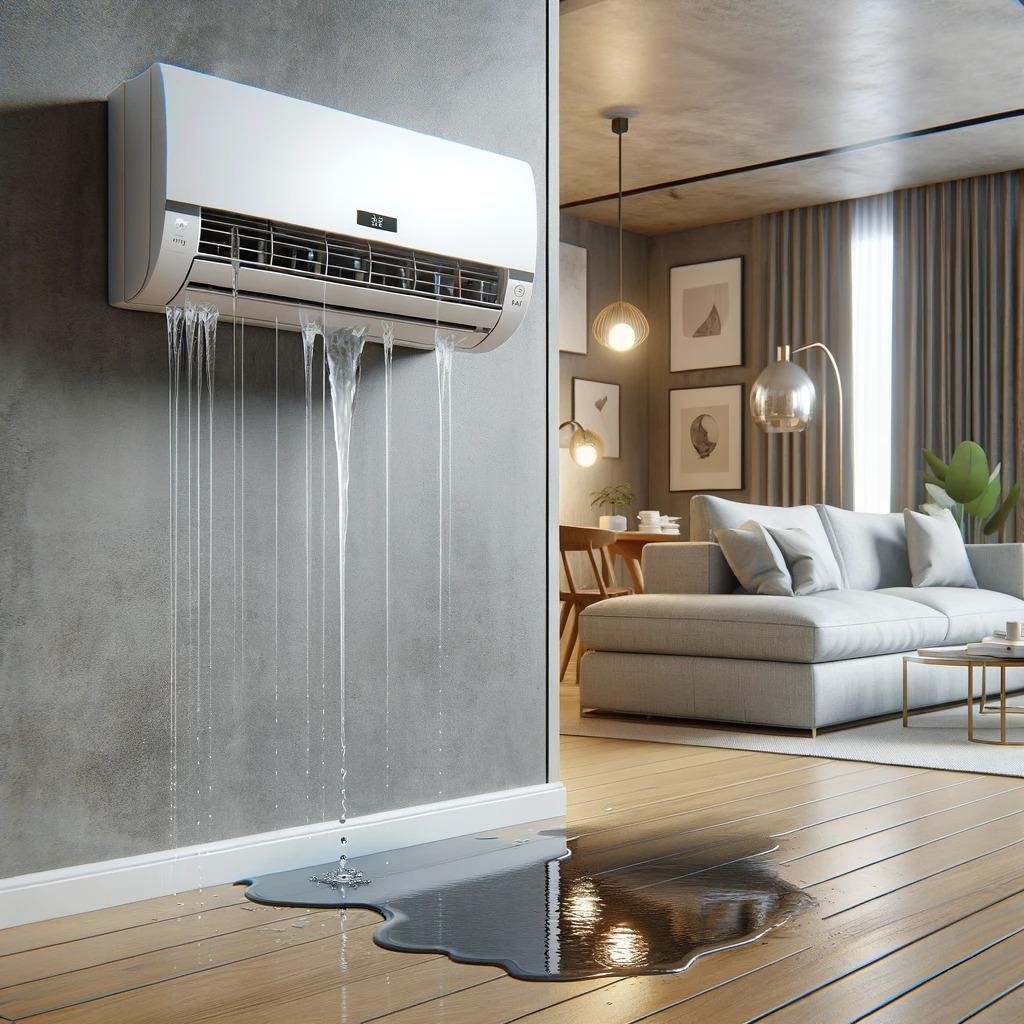
AC Refrigerant Leak: Signs You Shouldn’t Ignore
An AC refrigerant leak is more than just a little inconvenience; it is a significant problem that can reduce the efficiency of your air conditioning system, raise your energy expenses, and even pose health hazards. Understanding the indicators of an air conditioning leak is critical for keeping a comfortable and safe environment in your home or office.
we’ll look at what a leak is, why it matters, and the warning indications you shouldn’t ignore.
What is an AC refrigerant leak?
The Leak occurs when the coolant, also known as refrigerant, utilized in your air conditioning system leaks from the closed-loop system that is supposed to chill your home. This leak can be caused by a variety of sources, including rust, physical damage to the coils, loose connections, or normal wear and tear. Refrigerant is required to absorb heat from the indoor air, and your air conditioner will not be able to cool your room properly if you do not have enough.
Why should you be concerned about a refrigerant leak?
Apart from reduced cooling effectiveness, refrigerant leaks can cause a variety of difficulties. For example, they can drastically increase your energy consumption as your system strives to maintain the proper temperatures. This inefficiency might result in higher electricity bills and extra stress on your air conditioner, potentially decreasing its life. Furthermore, some refrigerants are detrimental to the environment. Furthermore, exposure to refrigerants might result in headaches, dizziness, and skin and eye irritation.
Signs of an AC Leak:
Recognizing the signs of a leak is essential for taking quick action to resolve the issue. Here are some key indications that you should not ignore:
-
Bubbling or hissing noises:
If you hear strange hissing or bubbling noises from your air conditioner, it could be a symptom of refrigerant leaks. These sounds occur when pressurized refrigerant leaks through cracks or holes in the coils.
-
Ice on the refrigerant lines:
The formation of ice on refrigerant lines, particularly near the indoor unit, is an indicator of low refrigerant levels. This occurs when the pressure inside the system lowers, causing moisture in the air surrounding the coils to freeze.
-
Poor cooling performance:
One of the most obvious indicators of an AC leak is a significant drop in cooling performance. If your unit struggles to chill the area, or if it takes more than usual to reach the set temperature, it could be due to a lack of sufficient refrigerant.
-
Increased energy bills:
An unexpected increase in your energy bills without a matching increase in usage usually indicates that your air conditioner is working harder than necessary, which could be caused by a refrigerant leak.
-
Pooled Liquid Near the Unit:
Seeing a pool of liquid around your air conditioning unit can also be a symptom of a refrigerant leak. Although it could be just condensation, it’s worth having a professional check it out.
What Should You Do If You Suspect a Leak?
If you discover any of the mentioned indicators of an AC leak, you should act fast. Here are the steps you should follow:
-
Turn off your AC:
First, turn off your air conditioning system to prevent future refrigerant leaks and compressor damage, which can be costly to fix.
-
Call a professional:
Dealing with an AC Repair in is not a DIY project. Specialized tools and skills are required to safely and successfully fix the leak, capture any released refrigerant, and recharge the system.
-
Regular maintenance:
To avoid future leaks, schedule regular air conditioner maintenance inspections with a certified technician who can inspect for early symptoms of wear and tear.
An AC leak is a serious problem that should not be ignored. Recognising the early indicators of an AC leak and acting quickly can help you maintain a safe and pleasant environment, save energy bills, and extend the life of your air conditioning system. Always consult an expert to handle refrigerant leaks safely and properly. Remember that regular maintenance and fast repairs are essential for a well-operating air conditioning machine.

